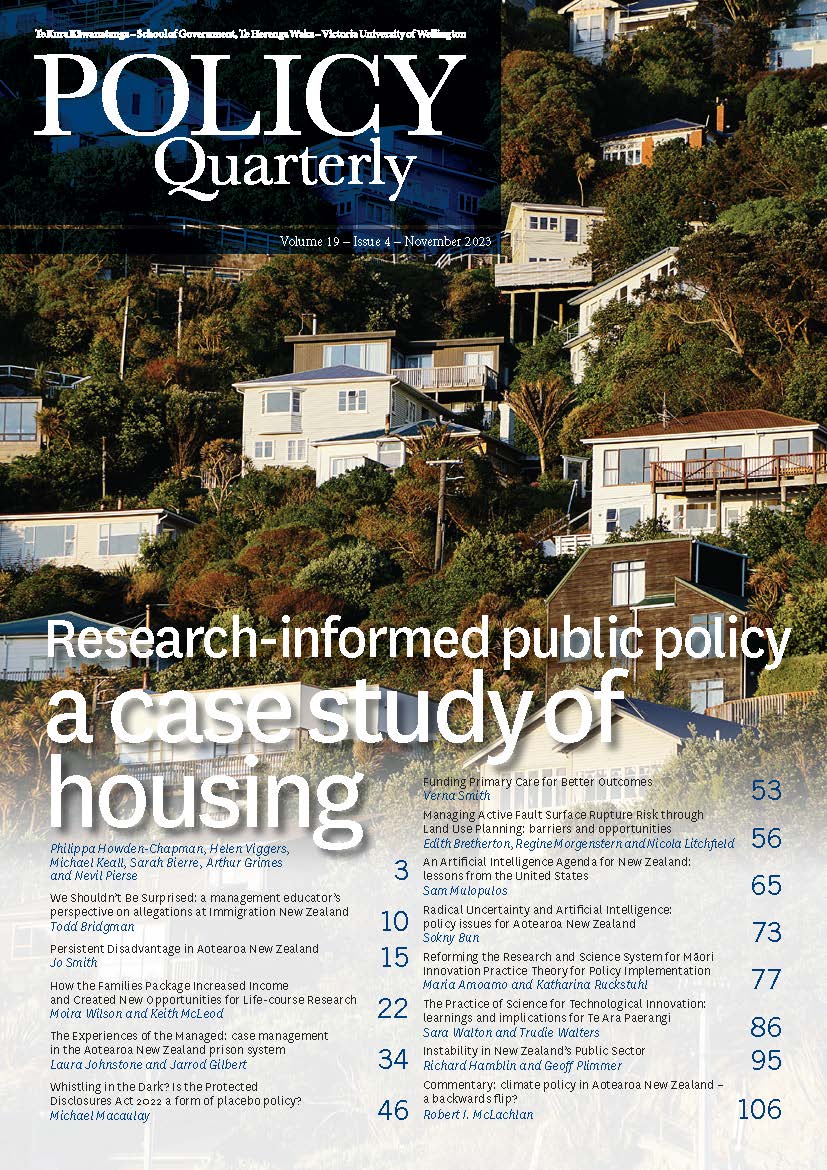Research-informed Public Policy a case study of housing
DOI:
https://doi.org/10.26686/pq.v19i4.8649Keywords:
Housing, Health, Public policy, Research methodsAbstract
Coordinating the timing and relevance of research for public policy is difficult. Based on ongoing early collaborations between researchers and policy analysts, this case study documents innovative research led public policy. He Kāinga Oranga, the Housing and Health Programme addresses the determinants of population health by improving substandard housing and was developed in consultation with local and central government, iwi and communities. We outline our research goals and processes and the range and impact of our outcomes, and draw conclusions about the value of long-term government-funded research investment that is focused on key policy issues, to improve the effectiveness and equity of public policy.
Downloads
Downloads
Published
Issue
Section
License
Permission: In the interest of promoting debate and wider dissemination, the IGPS encourages use of all or part of the articles appearing in PQ, where there is no element of commercial gain. Appropriate acknowledgement of both author and source should be made in all cases. Please direct requests for permission to reprint articles from this publication to Policy-Quarterly@vuw.ac.nz.



